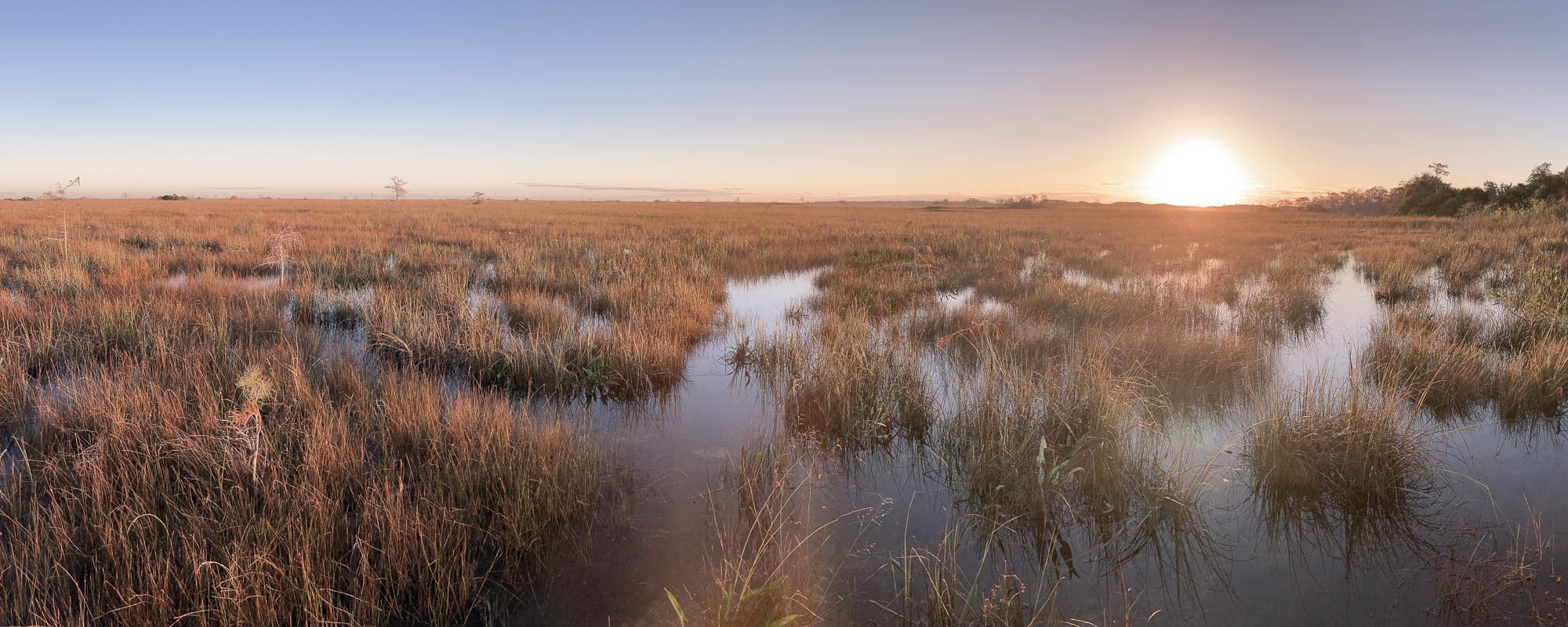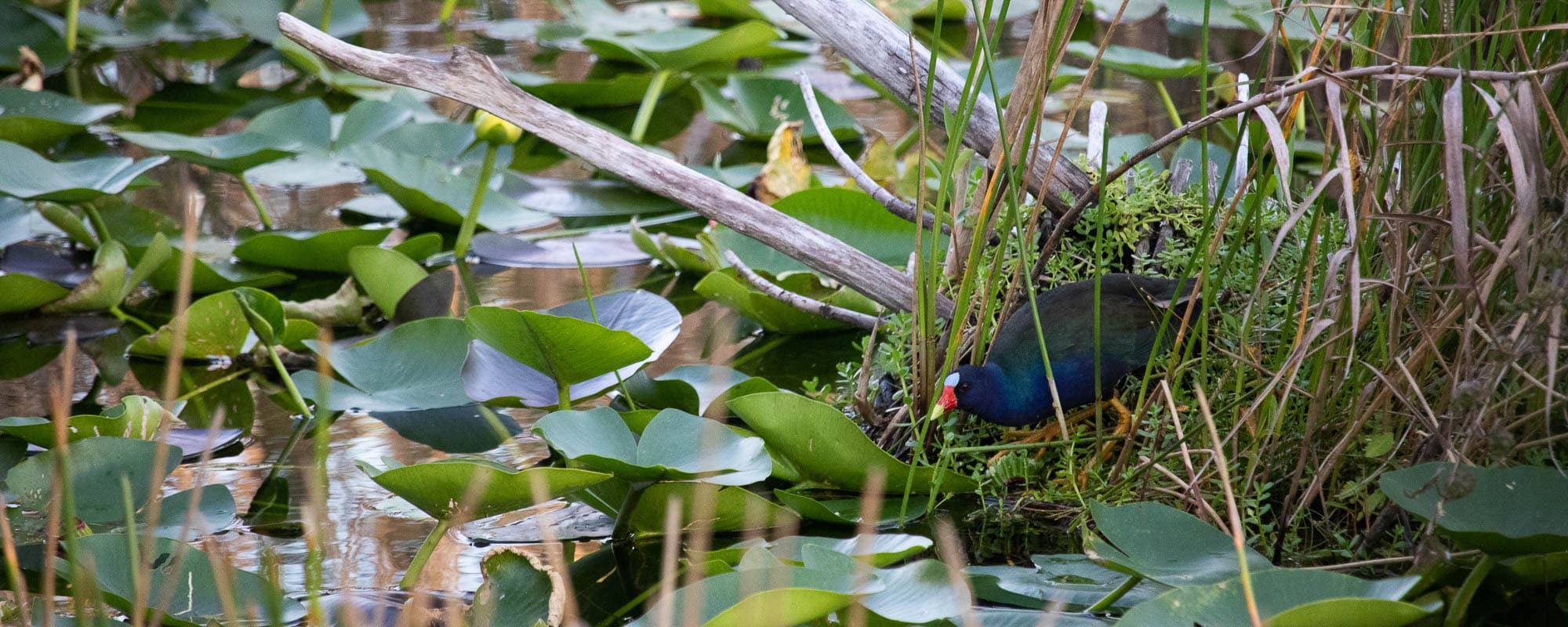A sprawling landscape of sawgrass marshes, mangroves, estuaries and hardwood forests in southern Florida, Everglades National Park is one of the world’s greatest wetland ecosystems, home to alligators, crocodiles, manatees and innumerable bird species.
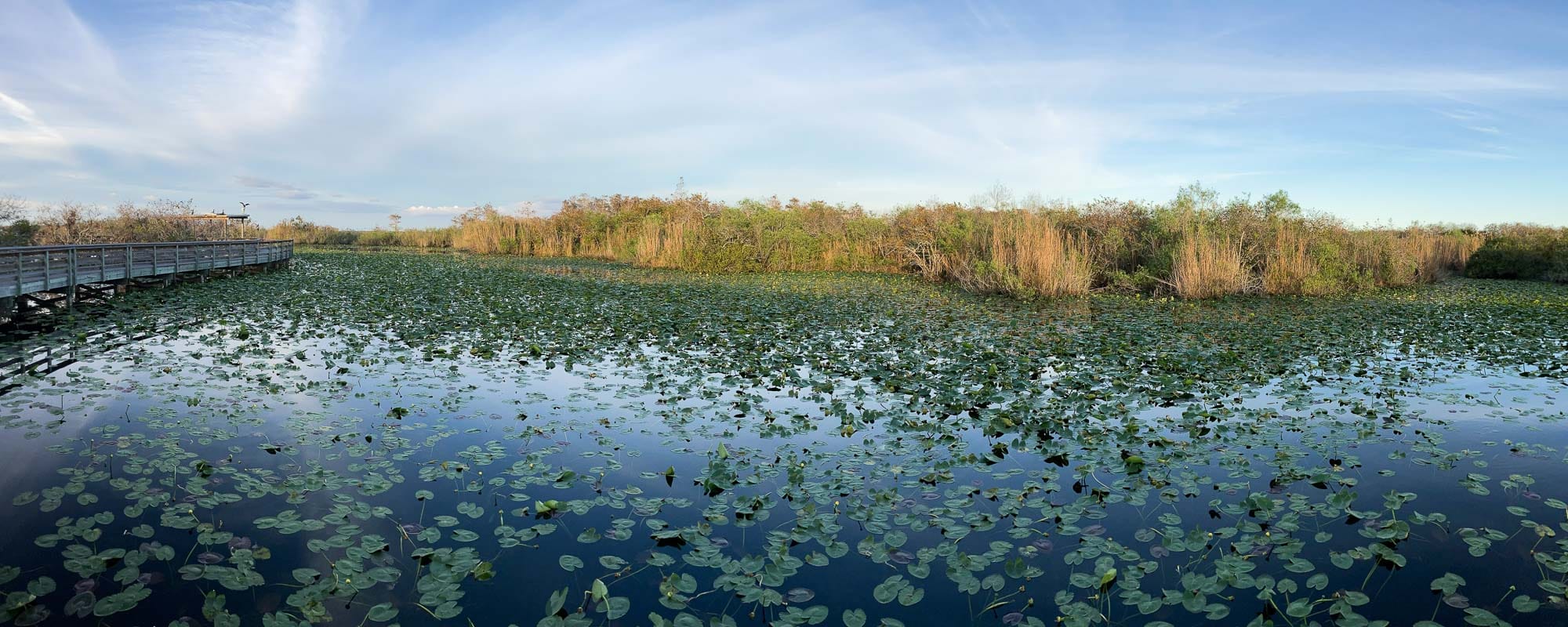
At the southwestern tip of Florida, vast marshes of sawgrass extend to the horizon, while mangrove forests line the coast of Florida Bay and the Gulf of Mexico. Interspersed between those marshes are pine forests and stands of hardwood trees called “hammocks.”
Together, these sprawling wetlands and woodlands are a haven for birds, which are present in mindboggling numbers in Everglades National Park.
From numerous wading birds—including storks, egrets, herons and the iconic roseate spoonbills—to pelicans, pigeons, cormorants, anhingas, and birds of prey like bald eagles, hawks, snail kites and owls, the Everglades are one of the world’s premier birding destinations.
The waters of Everglades National Park, aptly nicknamed ‘the River of Grass,’ are also home to an abundance of wildlife.
In fact, the Everglades are the only place in the world where both alligators and crocodiles share the same environment. Nowhere else on Earth is it possible to see these reptile species in the same body of water.
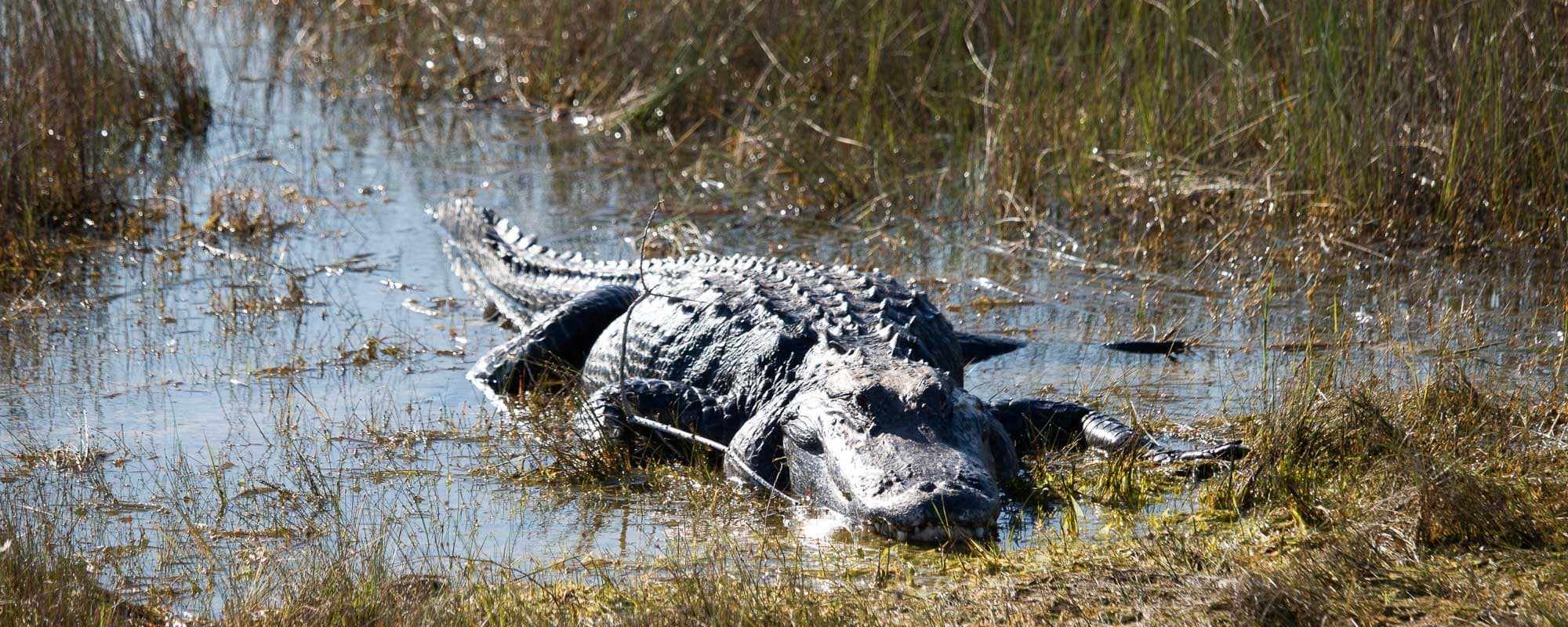
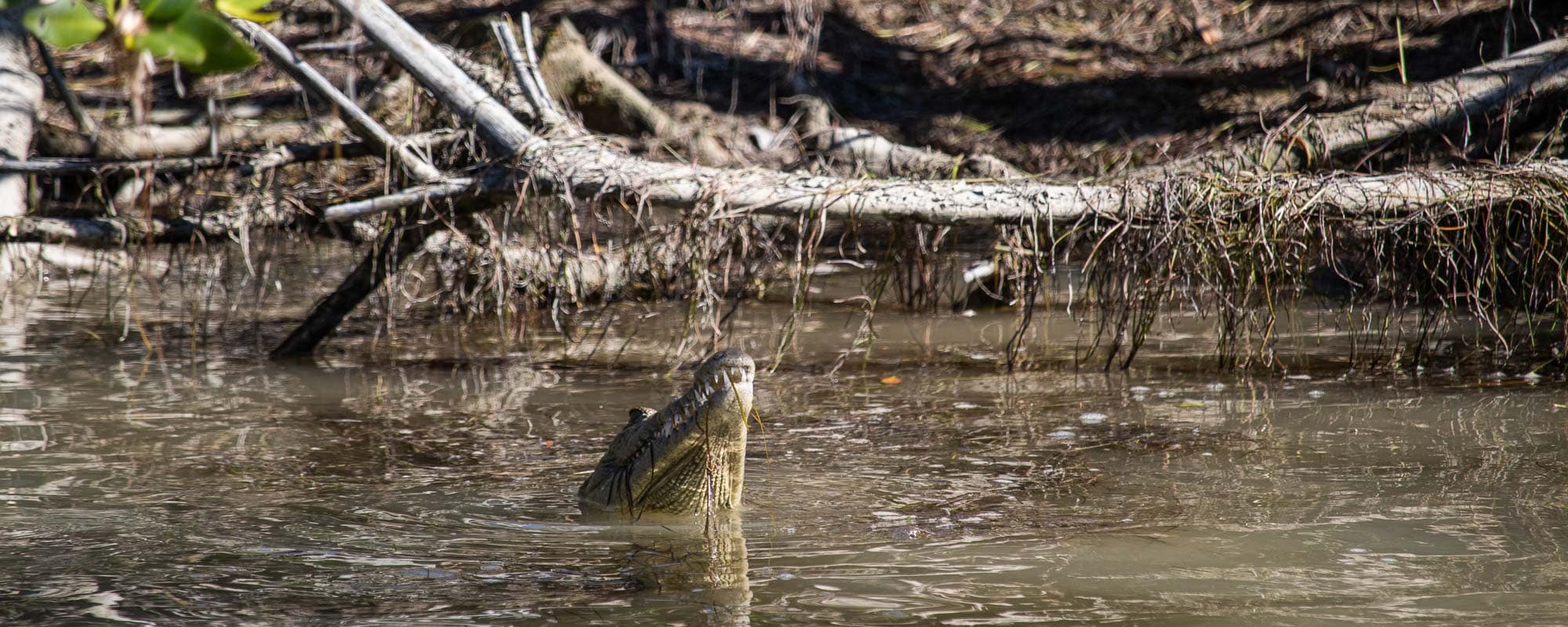
Other aquatic animals that make visiting Everglades National Park such an exciting experience are sharks and West Indian manatees, both of which are often seen in Florida Bay. A variety of snakes call the Everglades home as well, including the massive invasive Burmese python.
Although the park is only a short drive from Miami and is a popular day trip destination, it deserves much more time. There’s lots to see and do here, enough to keep you occupied for three or four full days.
A number of short hiking trails lead to viewpoints, through tropical forests or along the coastline. Guided boat tours depart multiple times daily from Flamingo and Everglades City, while you can rent kayaks and canoes for a self-guided immersion in the marshes of the Everglades.
The traditional homelands of the Seminole and Miccosukee Tribes, who have lived in the area for thousands of years, Everglades National Park was established in 1947 to protect these vast wetlands—which are technically a very slow-moving river—against drainage and development.
Nowadays, the park is one of the world’s most important wetland areas. It is both a UNESCO World Heritage Site and an International Biosphere Reserve.
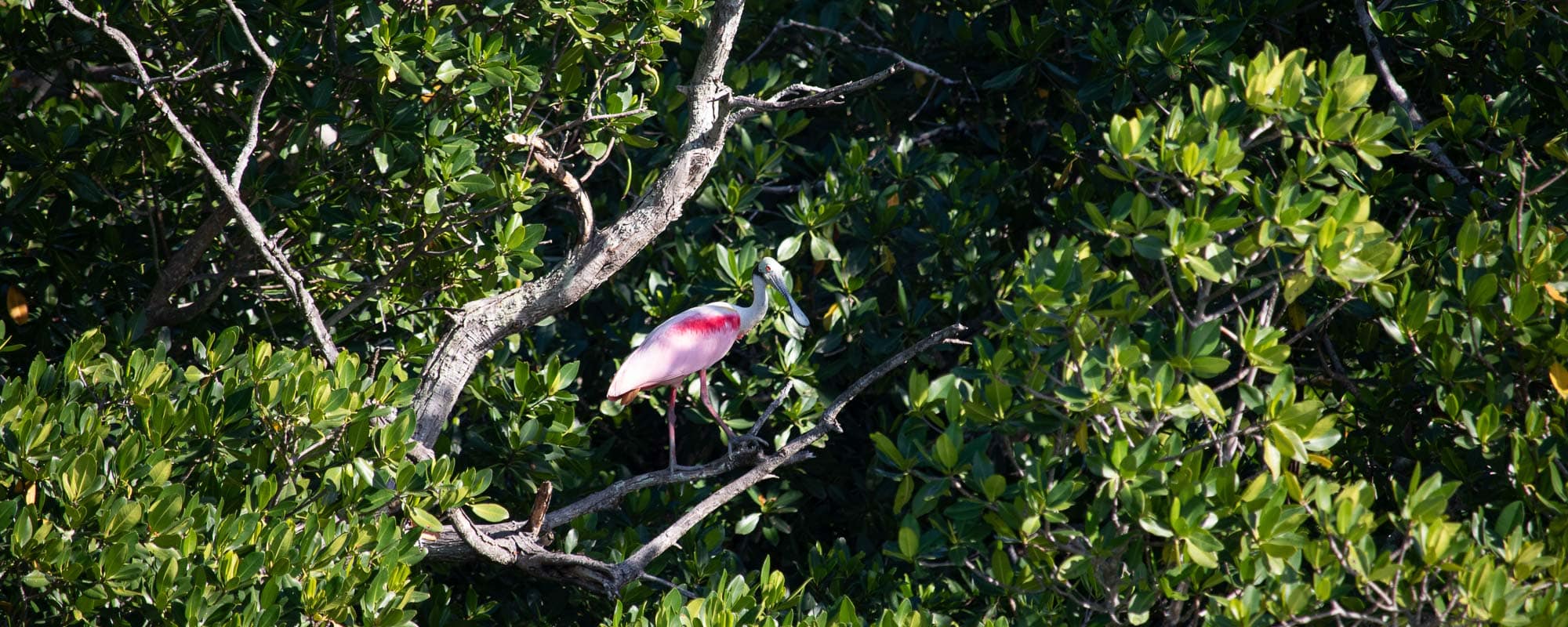
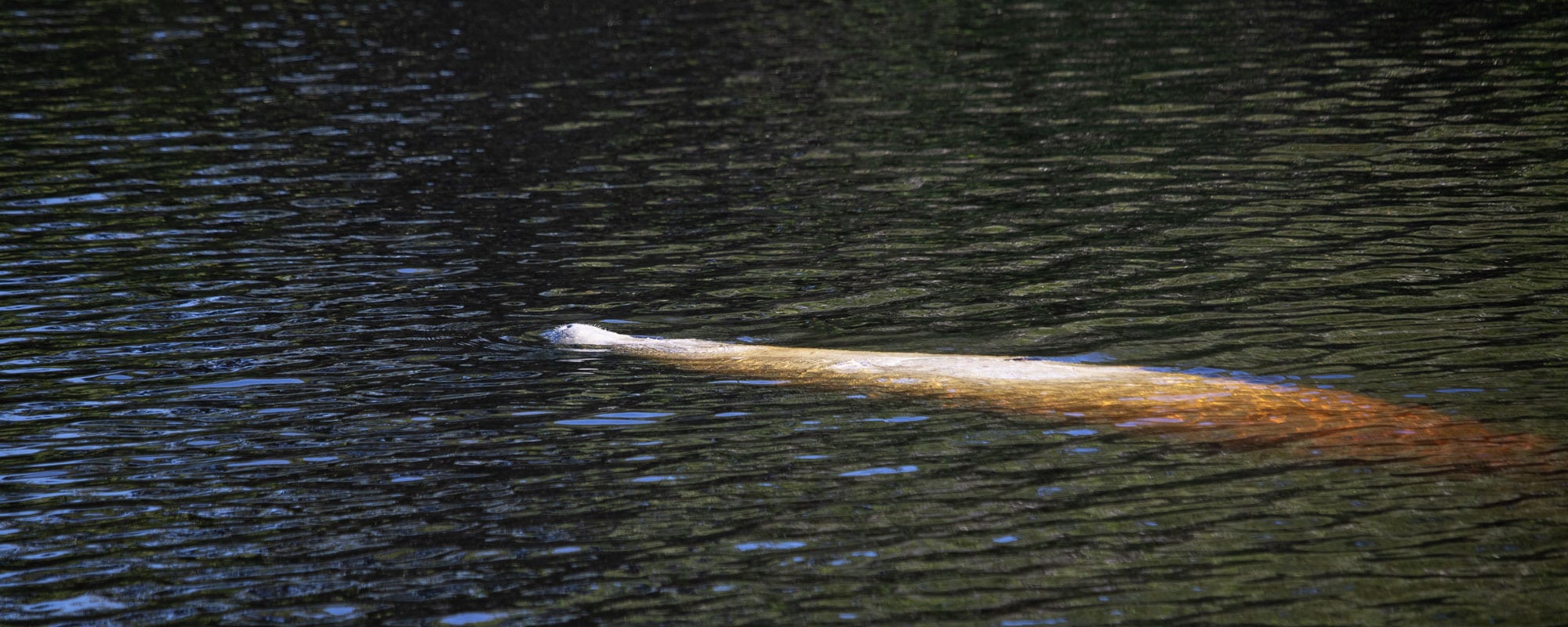
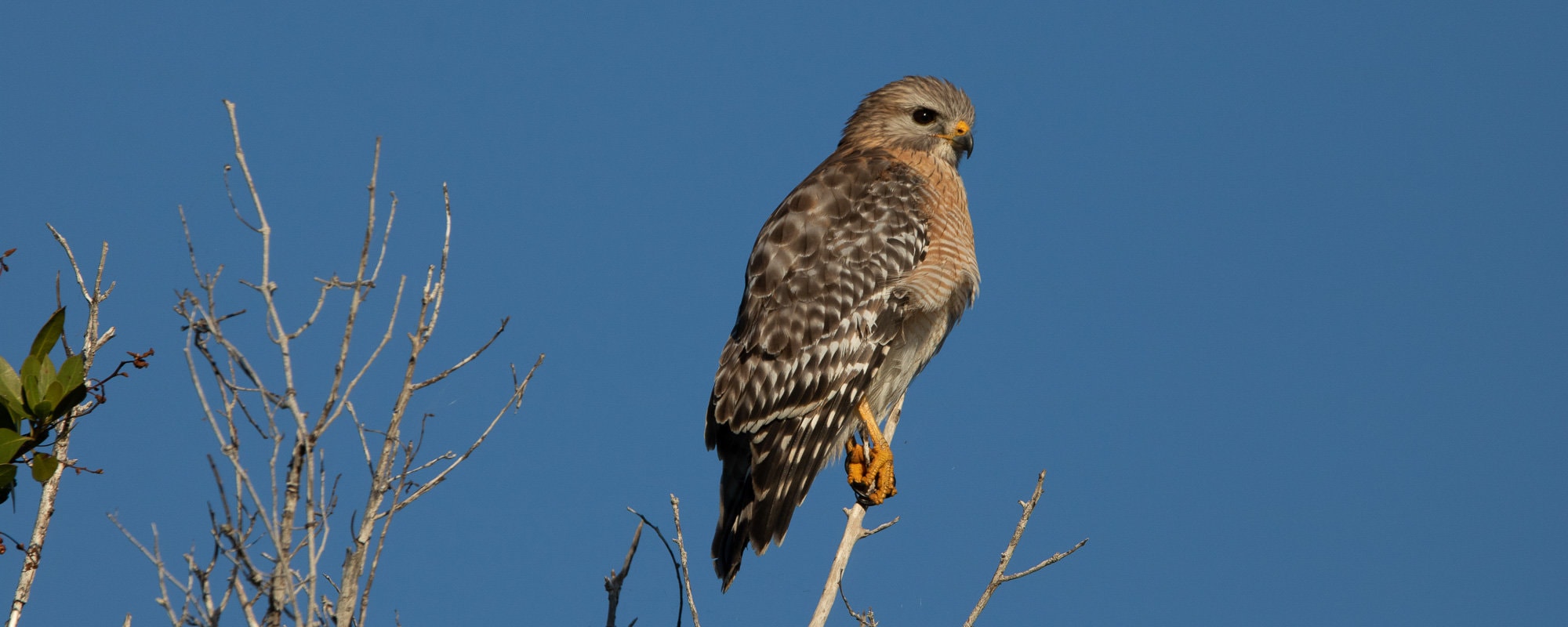
This Everglades National Park information page contains affiliate links. You can read more about our Terms of Use / Disclosure here.
Highlights of Everglades National Park
Just gazing out across the seemingly endless sawgrass marshes is a memorable experience in itself, but there’s much more to Everglades National Park than a simple view. In between the grasses and trees, and underneath the water’s surface, a biodiverse wonderland awaits to be explored.
There’s only one road through Everglades National Park, running from Homestead to Flamingo on the south coast. Along this road, you’ll find a few visitor centers, several hiking, biking and canoe trails, as well as scenic viewpoints.
If you’d like to really experience the Everglades, driving the Main Park Road and spending a night or two at Flamingo is the thing to do. You can also rent bikes, canoes or kayaks here, while boat excursions take visitors into the Everglades backcountry or into Florida Bay.
- Drive the Main Park Road
- Visit the Ernest F. Coe Visitor Center
- Hike the Anhinga Trail to see alligators
- Enjoy the view from Pa-hay-okee Overlook
- Walk around Mahogany Hammock
- Canoe the Nine Mile Pond Trail
- Join a guided boat tour at Flamingo
- Go bird watching at ponds along the road
- Spend the night camping at the Flamingo Campground
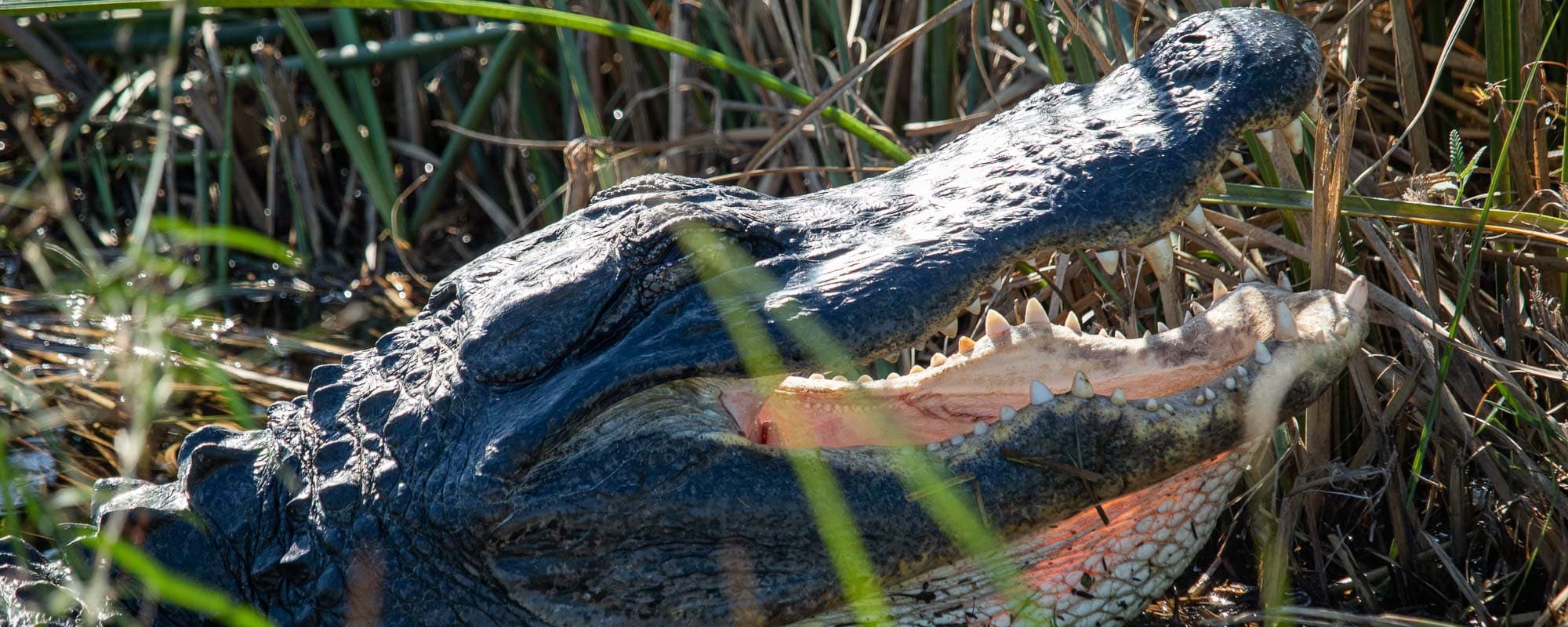
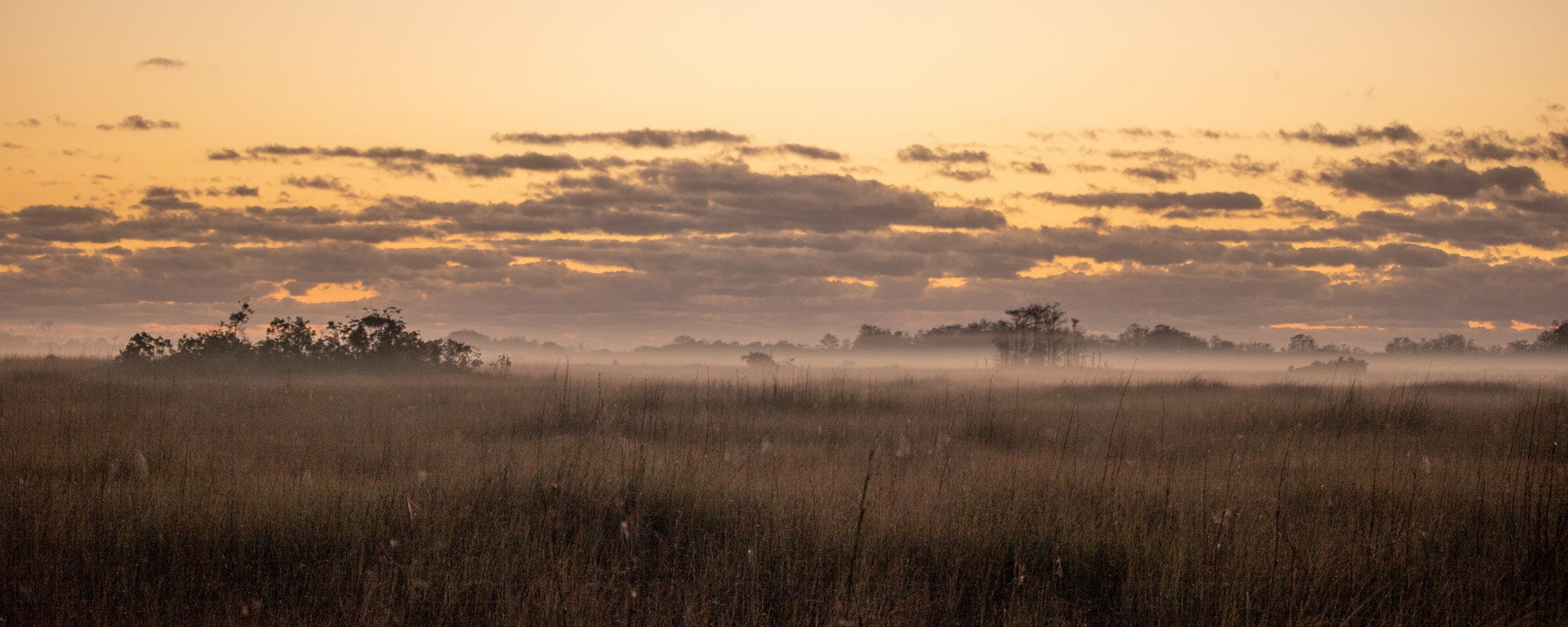
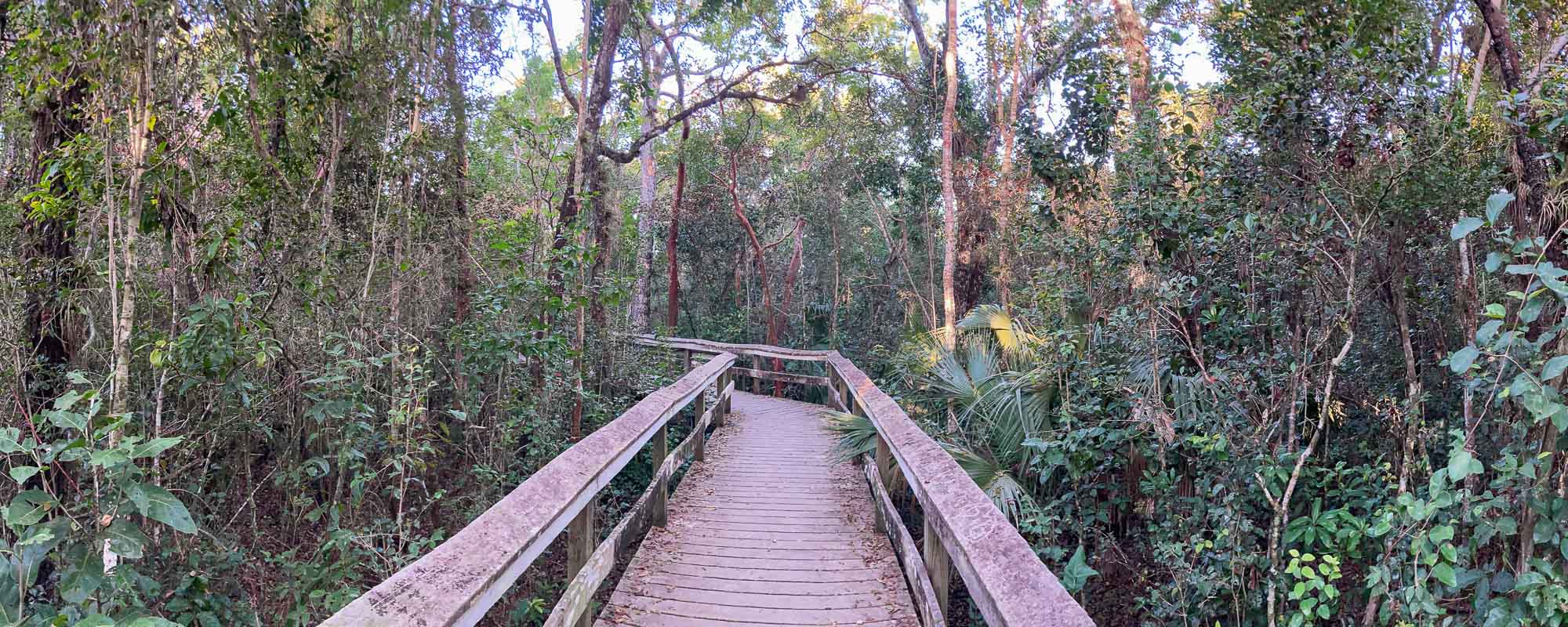
In the north of park, along the Tamiami Trail west of Miami, you can visit Shark Valley, which is famous for its guided tram ride to an observation tower.
Just west of Shark Valley lies Big Cypress National Preserve, another National Park Service unit that is home to swamps, woodlands, an unpaved scenic drive and tons of wildlife.
The Tamiami Trail is also the only place in Everglades National Park where you can join airboat tours (which, it must be said, are a controversial way to see the Everglades).
- See Shark Valley and its wildlife on a tram or bike ride
- Drive the scenic Big Cypress National Preserve loop road
- (Go on an airboat tour)
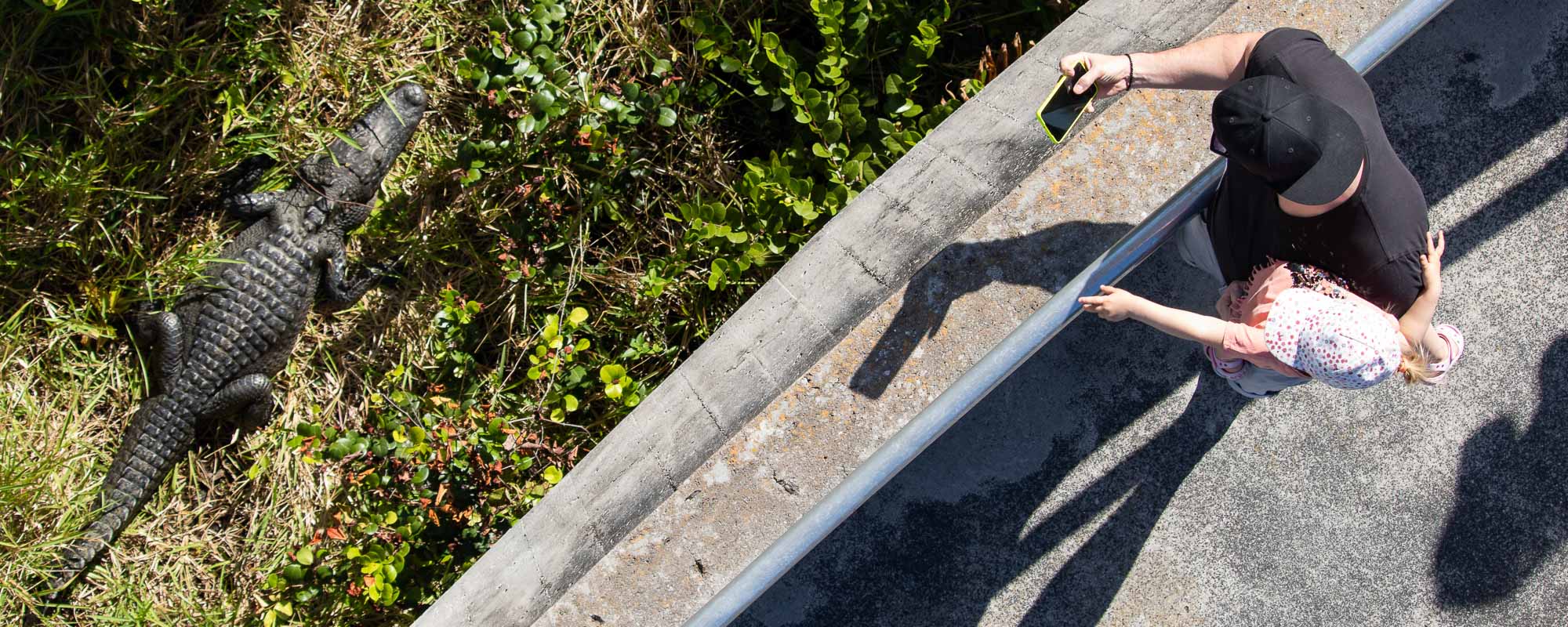
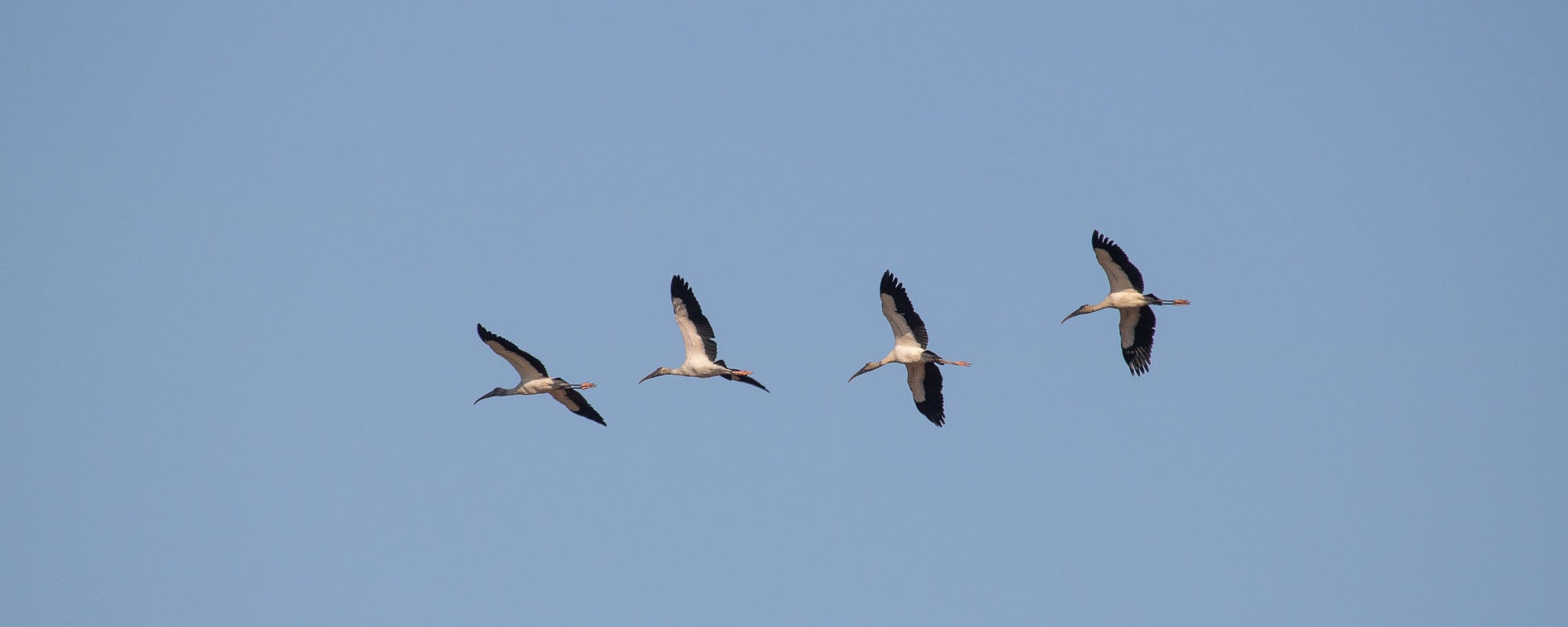
In the northwest, the Ten Thousand Islands are a boater’s paradise, home to myriad birds and marine life and limitless opportunities for exploration.
- Kayak the Ten Thousand Islands

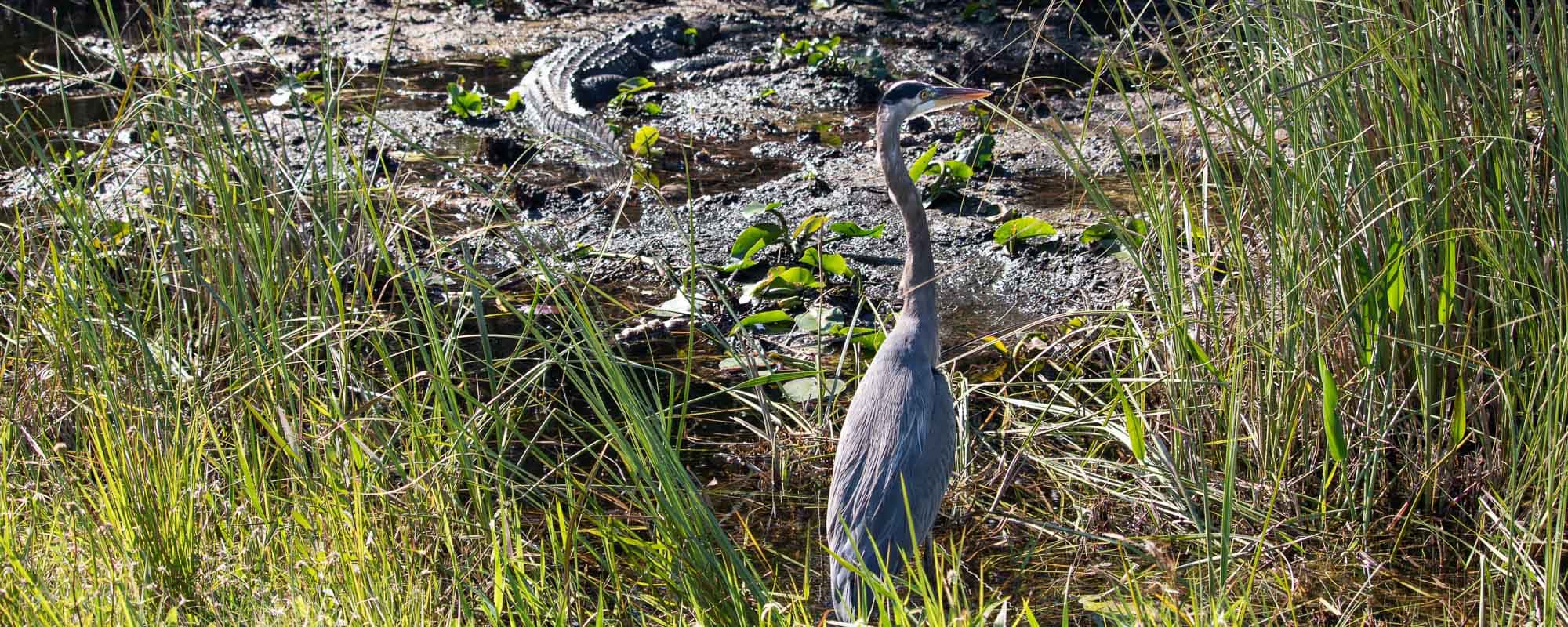
Useful Info
Location: Southern Florida
Nearest Cities: Miami, Homestead and Everglades City
Area: 2,410 square miles (1,542,526 acres)
Annual Visitors (2022): 1,155,193
Features: Sprawling wetlands often called “the river of grass”, coastal mangrove forests, sawgrass marshes and hardwood hammocks, countless small keys in Florida Bay, unique wildlife such as alligators and crocodiles, manatees, dolphins, sharks, turtles and innumerable bird species
Top Attractions: Anhinga Trail, Pa-hay-okee Overlook, Mahogany Hammock, Nine Mile Pond, Flamingo, HM69 Nike Missile Base, Shark Valley Observation Tower, Ten Thousand Islands
Popular Activities: Bird and wildlife watching, cycling, hiking, canoeing and kayaking, fishing, guided boat tours
Suggested Stay: 3 days
Campgrounds:
- Flamingo Campground (274 sites)
- Long Pine Key Campground (108 sites)
More Information:
Nearby National Parks:
- Biscayne National Park, Florida
- Dry Tortugas National Park, Florida
- Virgin Islands National Park, U.S. Virgin Islands
